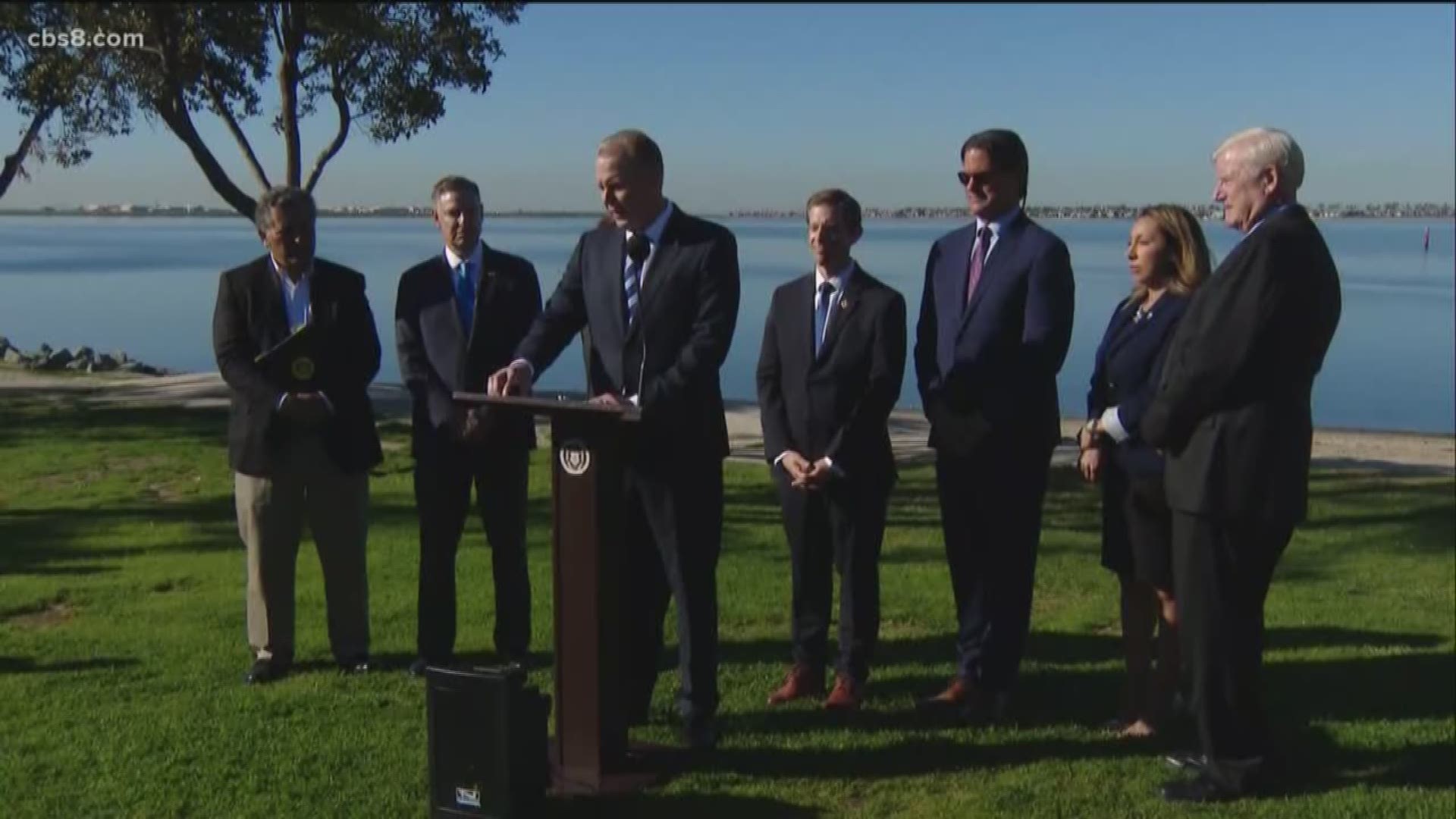CHULA VISTA, Calif. — Local elected representatives gathered on Friday morning to discuss the U.S.-Mexico-Canada (USMCA) agreement and how funding for the pact will impact pollution in the Tijuana River Valley.
U.S. Reps. Mike Levin, D-Oceanside, Susan Davis, D-San Diego, Juan Vargas, D-San Diego, Scott Peters, D-San Diego, Imperial Beach Mayor Serge Dedina and San Diego Mayor Kevin Faulconer discussed the $300 million in the international agreement to fund the Border Water Infrastructure Project (BWIP) to address pollution in the Tijuana River.
Over four years, that money would fortify water treatment facilities in the valley, namely the South Bay International Wastewater Treatment Plant. In December, the House and U.S. Senate also passed a $1.4 trillion federal spending deal that includes $25 million for the Environmental Protection Agency's Border Water Infrastructure Program, $10 million more than Congress' allocation to the program last year.
Transborder pollution from the Tijuana River has contaminated U.S. waters and coastlines for decades, forcing San Diego County environmental health officials to regularly close beach access near the border. During that time, local and state officials and environmental activists have called for federal assistance to protect the health of the environment and residents near the border.
In April 2019, Sens. Kamala Harris and Dianne Feinstein, D-California, submitted a jointly written letter to multiple federal agencies requesting they address sewage runoff in the river.
In July, Reps. Peters, Vargas and Levin introduced legislation to increase funding for Tijuana River cleanup efforts and prevention of future pollution. And in September, the San Diego Regional Chamber of Commerce's annual delegation of local officials and business leaders discussed the issue with cabinet officials and members of Congress.
The USMCA would replace the North American Free Trade Agreement, which went into effect in 1994 and is blamed by some politicians on both sides of the aisle for hastening outsourcing and the decline of the country's manufacturing industries. Congressional Democrats have held up the deal in the House until coming to an agreement with the White House to strengthen its labor and environmental standards.
Local business leaders and elected officials have sung the deal's praises for months, arguing that inter-border commerce is too vital to the San Diego region to sever trade relations between the U.S. and Mexico.
According to the San Diego Regional Chamber of Commerce, trade between Mexico and San Diego has fostered a $2.5 billion supply chain and more than 100,000 jobs. Annual trade between California and Mexico is valued at roughly $73 billion.

